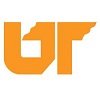
PART 4: Kendra Wills gained so much personally from the project
 (EDITOR’S NOTE: This is the fourth in a six-part series describing one of the projects undertaken this year by a team of MBA students from the University of Tennessee’s Knoxville campus. We are examining the experience from the perspectives of the client, the students, the mentor/teacher, and the University. Today’s story focuses on the experience as seen through the words of Kendra Wills, student team leader.)
(EDITOR’S NOTE: This is the fourth in a six-part series describing one of the projects undertaken this year by a team of MBA students from the University of Tennessee’s Knoxville campus. We are examining the experience from the perspectives of the client, the students, the mentor/teacher, and the University. Today’s story focuses on the experience as seen through the words of Kendra Wills, student team leader.)
By Tom Ballard, Director of Innovation and Entrepreneurial Initiatives, Pershing Yoakley & Associates, P.C.
“There was so much I personally gained,” Kendra Wills said of her experience leading a team of MBA students from the University of Tennessee (UT) that worked during Spring Semester on a project for the Girl Scouts of the Council of the Southern Appalachians.
Describing it as a “consulting like experience,” the soon-to-graduate MBA student added that she did not expect to be selected for the leadership role.
“We had a great team,” Wills says. “We got along really well.”
The other members of her group were Mona Ahlhauser, Jessie Chou, Rachel McGill, and David Parham.
Their task was to help the Girl Scouts Council of the Southern Appalachians develop a plan to increase its number of adult volunteers.
“Whenever I thought about an organization I might donate time to, the Girl Scouts did not come to mind,” Wills said, a fact that was shared by her team members.
Yet, the five-person group immersed itself in the challenge. For the first two weeks, Wills said they mostly focused on research internal to the Girl Scouts organization to develop a set of questions to ask.
“From our interviews, we learned some negative things that we had to present (in its weekly reports),” Wills said. “That is real-life, but challenging.”
The team also did considerable benchmarking, including organizations dissimilar to Girl Scouts other than engagement of volunteers. One was the UT Alumni Association.
After all of its analysis, the students developed 10 recommendations, but faced the daunting task of reducing the number to no more than five. This challenge provided an important learning experience.
“We had to be open to hearing everyone and not take it personally,” Wills said about an individual recommendation that others might reject. “We were really able to listen to each other and work through it.”
They learned soon that other challenges were ahead.
After arriving at five recommendations and reviewing them with Instructor Pat Richardson and Kevin Frazier, a volunteer coach and teacher, they presented the ideas to the client.
“They weren’t that impressed,” Wills recalled vividly. “They said they had tried them before. We were defeated.”
So, what did they do? First, they recognized that it was a real-life learning experience.
“We went back to the drawing board,” Wills said. “It was not necessarily the ideas, but the way we presented them . . . the words.”
The second presentation went much better.
For Wills, the experience benefitted her in many ways. She had worked in supply chain management for a major national transportation carrier before returning to college to earn her MBA with the idea of becoming a consultant.
Wills values the enhanced understanding she gained about critical thinking and innovation within a framework.
“We are going to be expected to innovate within a process,” she says.
NEXT: Booth Kammann discusses the initial report and the final recommendations.


